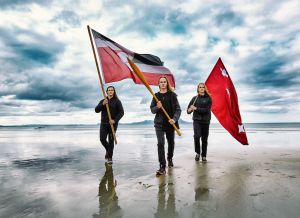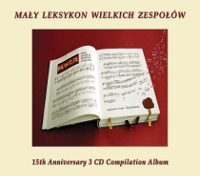I’ve been wracking my brains trying to think of when last a band this young was having such an impact within the metal community, and while definitely more rock than metal it would probably be Ash, until we go all the way back to Def Leppard which was virtually forty years ago. But, while they may be young, their songwriting is complex, developed and highly political. Their live performance energy is startling, with just two fifteen-year olds commanding the front of stage as effectively as four- and five-piece bands three times their age. But perhaps most surprising of all, many of their songs are in New Zealand’s native language, Te Reo Māori. In fact, guitarist/lead singer Lewis de Jong (15) and his brother, drummer Henry (17), are of Ngati Pikiāo and Ngati Raukawa descent – they call themselves ‘Stealth Māori.’ They attended a full immersion kura kaupapa Māori (Māori language school) until they were seven years old, where singing waiata and performing haka were a daily routine. Also ingrained in their early learning were stories of New Zealand history from a Māori perspective. In September 2017, they won the prestigious APRA Maioha award for their song “Raupatu” – a thrash metal commentary on the 1863 act of parliament that allowed the colonial government to confiscate vast areas of land from the indigenous Māori people. They have already been nominees at the Vodafone New Zealand Music Awards.
The combination of thrash metal with Māori history and language has proved popular. Their latest music video for “RūAna Te Whenua” has more than a million Youtube and Facebook views, spent 2 weeks at no. 1 on Spotify’s NZ Viral chart, and hit no. 2 on the iTunes global metal chart (just behind Iron Maiden’s “Run to the Hills”). The band’s music has been playlisted on stations in New Zealand and around the world – from Scotland to Brazil, as well as the USA, Australia and Germany. They are creating a real stir here in NZ, so when I was given the opportunity to interview them it seemed like a great opportunity, and I caught up with Lewis, as follows.
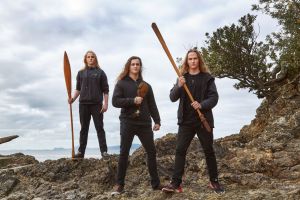 Kia ora koutou
Kia ora koutou
Tena koe, e hoa
What or who first inspired you to form a band?
Our Dad was a musician, so there were always instruments about the house and we always had music playing, so it was almost part of our DNA. When I was little, I used to watch a DVD of Stevie Ray Vaughan, and that was what first inspired me to learn guitar. We also listened to a lot of Metallica, and I wanted to be like them, so I would have to say Metallica was our inspiration for forming a band. I used to imagine James Hetfield knocking on our door and dropping in for a jam.
How did it come about that you decided to perform songs in Te Reo? I'm aware of Te Reo being used in other musical forms, but have never heard it in metal
Henry and I are of Ngati Pikiāo, Ngati Hinekura and Ngati Raukawa descent, and we went to a Kura Kaupapa Māori when we were younger. When we first started writing songs, we wrote in English, but we were inspired to use Te Reo Māori because we wanted to enter a competition called Smokefree Pacifica Beats, and using Te Reo Māori or a Pacific language was one of the criteria. We were mates with the guys in a band called Strangely Arousing, who had won the competition a couple of years earlier with a song partly in Te R e o Māori. They are a SKA band, but three of them also used to play for a metal band called Aftershock. So we thought, why not try using Te Reo Māori, but stick to our metal style?
For most people around the world their only understanding of Maori culture is from seeing the Haka performed by the AB's. How would you describe the culture to someone who has never experienced it?
Ha,ha. Well, if your only exposure is through the AB's haka and then you hear our music I guess it might lead some people to believe that Māori culture is very aggressive and warlike. Well, it is definitely a warrior culture, but there is also a strong connection to the natural environment and our ancestors. Māori theology says that all people are descended from Tāne (the god of the forest); and Tāne was the eldest son of Papatuānuku (the Earth Mother) and Ranginui (the Sky father). So who you are and your ancestry is very important, as is respecting the natural world. For example, if you wanted to cut a tree from the forest to make a waka (canoe) or a taiaha (long-handled club), you would say a karakia (prayer) to Tāne to thank him for that gift before you cut the tree down. Likewise, when we were kids and we used to go fishing in the river, our Dad would always make us do a karakia before we went out and we had to throw the first fish back, as a gesture of respect to Tangaroa (the god of the sea). And, we would always bury the fish bones or shells of the shellfish well above the high tide line, so as not to cause Tangaroa grief by leaving the remains of his children lying on the beach for him to see.
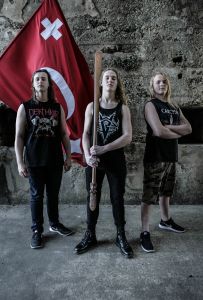 Waipu is a small township, how have you been able to break out of that environment and gain wider support?
Waipu is a small township, how have you been able to break out of that environment and gain wider support?
I think the internet has definitely played a big part in that - we can connect to people and people can connect to us from pretty much anywhere in the world. We get heaps of messages on Facebook, Instagram and YouTube from all over the world and in lots of different languages, which is very cool. And our families have also been very supportive with us gigging and touring in NZ - my Grandma bought a van for us to use, and our parents have driven us all over the country in the past 5 years.
What have been the most important points of your career to date?
There have been a few pivotal moments. Maybe the first was when Paul Martin played some of our Demos on the Axe Attack, and invited us to open for Devilskin. That definitely opened doors for us, and gave us an opportunity to play in front of some pretty big crowds when we were only 12 and 14. Meeting Tom Larkin from Shihad was another - he produced 5 of the songs on our album and really kicked our butts in the process. Working with him definitely helped us to focus and improve our playing and songwriting. Winning the National finals of both Smokefree Rockquest and Smokefree Pacifica Beats in the same year was pretty huge - it allowed us to record quite a few songs, and make videos for them too. Last year, we won the APRA Maioha Award for our song Raupatu, which was a huge honour to be recognised by other musicians in that way. Not long after that we signed a management deal with Das Maschine in Germany and got on the bill at Metaldays in Slovenia, Wacken Open Air and Summer Breeze in Germany, and Bloodstock in the UK as well as quite a few other festivals. And earlier this year we opened for Prophets of Rage in Auckland. We are all huge fans of both Rage Against the Machine and Public Enemy, so that was pretty surreal.
Have you been able to play many gigs? I've been aware of Alien Weaponry since the video for "Rū Ana Te Whenua" came out, but haven't seen you play down here yet? Are there any plans to do so?
We have only played two gigs in in the South Island, in October last year as part of our 'Trembling Earth' tour to support the release of “Rū Ana Te Whenua”. They were in Christchurch and Nelson, but we'd really love to come back and do more. People in Dunedin often ask if we'll come down there, and we would love to play the TUKI festival in Wanaka. We are planning to tour NZ and Australia in summer 2019, so keep an eye on our Facebook page.
How did you manage to get a record deal with Napalm?
That was organised by Das Maschine. One of the first things they did when we signed up with them was look for a record label that they felt would suit our sound, and that would benefit us to sign with. Napalm was high on their list, so we were stoked when we heard that Napalm were keen to take us on.
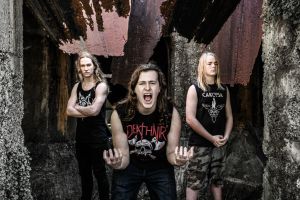 Have you been surprised at the speed with which everything is happening?
Have you been surprised at the speed with which everything is happening?
We have actually been playing and writing songs together for 8 years now, and there were times when we felt like nothing was happening. Definitely since we got management and a record label in Europe, things have sped up a lot. There is only so much that can be achieved from the other side of the world. When Ethan and I were 12 and Henry was 14 we set a goal to play at Wacken while we were still all teenagers - it was a bit of a crazy goal, and we still can't quite believe that is going to happen this year. From the feedback we're getting about the album, there will hopefully be more overseas touring opportunities in the near future.
How would you describe the album to someone who hasn't heard it, and would it be possible to provide a breakdown of what the songs are about and what they mean to you ?
In a metal context, I would describe it as thrash/groove metal. And then, as you mentioned above, mix the thrash/groove with haka, and that's what we sound like. We hope people will enjoy the diverse range of sounds - there are the standard instruments - guitar, bass and drums, but we also use some traditional Maori instruments, which can sound quite eerie and atmospheric. Our songs are quite riff-based, but they also have some pretty intense drumming and bass parts - we all contribute quite a lot to the sound, as we are only a three-piece. I do most of the singing, but all of us do sing and quite often work on harmonies in our vocals. About half of the lyrics are in Te Reo Maori, which some people might find weird if they are not familiar with the language, but it almost works as another instrument, so it's more accessible than you might imagine.
What's next?
Well, we're flying out of New Zealand in early July and will do 3 shows in Australia (Melbourne - 5th, Sydney - 6th and Brisbane (Dead of Winter Festival) - 7th), then we head to Europe, where we'll be playing at 7 festivals and a whole bunch of club shows in Europe and the UK. Ethan and I have a few NCEA exams when we get back in October, and we'll take a break for a few months to do some more song writing - we already have a few tracks in progress for the next album. We want to tour NZ and Australia in the summer, and at the moment it looks like we will be back in Europe in the middle of next year for the festival season. We are getting heaps of requests to tour the USA and Canada so it's likely we'll end up there sometime in 2019 as well.
Kia ora rawa atu
Nga mihi ki a koe.
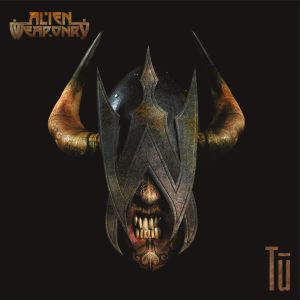 Lewis also provided me with notes about each song, as below. This is an incredible piece of work, no matter what the age of the participants, and part of me wonders whether or not, in an ideal world, that this could propel them in the same manner that ‘Roots’ shot Sepultura into a different game altogether. Did I mention that they are still at school??
Lewis also provided me with notes about each song, as below. This is an incredible piece of work, no matter what the age of the participants, and part of me wonders whether or not, in an ideal world, that this could propel them in the same manner that ‘Roots’ shot Sepultura into a different game altogether. Did I mention that they are still at school??
- Whaikōrero – literally means ‘speech’ – it is an introduction to the second track, Rū ana Te Whenua, and talks about the battle at Gate Pā / Pukehinahina, where our ancestor Te Ahoaho fought and lost his life. The lyrics were written by Henry and Lewis, with some input from our father, who knows a lot about early New Zealand history, especially events relating to our family. The track was recorded in the Waipu Caves, and at the beginning there are traditional Māori instruments – Lewis plays the Kōauau (bone flute) and Ethan swings the Pūrerehua (this literally translates to ‘Butterfly’, but the best way to describe it in English is ‘bull roarer’). The speaker is Henry.
- Rū ana Te Whenua – this song tells the story of the 1864 battle at Gate Pā; where 230 Māori dug themselves into the hilltop at Pukehinahina and withstood the heaviest artillery bombardment the British army has ever delivered, resulting in a crushing defeat for the 1700 strong British forces and changing the course of history. Our (Henry and Lewis’) great, great, great grandfather, Te Ahoaho, died in this battle. There is also a very moving story about how after the battle, a young Māori woman, Heni Te Kirikaramu, brought water to the wounded and dying British solders – her compassion and the grief surrounding the many deaths are also described in the song. The lyrics were developed by Henry and Lewis, based on stories told to them by their father, and the many accounts of the battle in books and online.
- Holding My Breath – This song was written by Lewis, about the anxiety of being judged and socially ostracized by peers to the point of being unable to function. He says: “It’s about something that actually happened to me. I felt so bad that I literally stayed in my room and couldn’t bring myself to leave the house or talk to anyone. I wrote the song at that time, and it was one of the things that helped me work through it, so I hope it will resonate with other people going through similar things.”
- Raupatu – is about the law passed in 1863 by the colonial government in New Zealand, enabling them to confiscate land from anyone they deemed to be ‘rebels’. In this way, millions of acres were stolen from their Māori owners, plunging these communities into poverty and changing the balance of power and the face of history in Aotearoa / New Zealand forever. These unjust confiscations are known as ‘Raupatu’, loosely translated as ‘theft’. The lyrics were developed mostly by Lewis, and include sections from the Treaty of Waitangi, signed in 1840, which was supposed to guarantee Māori ‘full power and chiefly authority over their lands, people and all things of value to them’.
- Kai Tangata – literally translates to ‘Eat People’, but refers specifically to the ancient Māori tradition of eating the flesh of their enemies after battle. In Māori custom, the human body is tapu (sacred), and food is considered noa (ordinary or everyday), so to reduce a person to the status of food was a great insult, and a way of showing disdain for a fallen enemy. The lyrics were mostly developed by Henry, based on stories told him by his father about a series of intense conflicts that occurred between 1800 and 1840, when the Northern tribes were heavily armed with muskets as a result of their contact with European settlers. In a particularly savage battle in 1823, a Ngapuhi (Northern) tribe attacked and decimated the de Jong brothers’ Te Arawa (Central North Island) ancestors, who at that time were mostly still using traditional weaponry as European settlers and traders had not yet arrived in that part of the country. The verses and chants refer to the pounding footsteps of the war parties, the taking of slaves and (severed) heads, and the ‘sweet tasting flesh’ of the enemy. The chorus refers to the parts of the full body moko (tattoo) traditionally worn by Māori warriors.
- Rage – The lyrics to this song were written by Lewis, based on an incident at school, where he told a friend something in confidence and the friend betrayed that confidence, resulting in the two of them coming to blows. The chant ‘Te ihi, te wehi, te wana’ at the end is often used in haka; and refers to the channelling of rage in order to summon power before a battle.
- The Things that you Know – is a statement against following the rules and living a life of conformity. Written by Lewis, it expresses his own personal belief in taking risks and trying things outside your comfort zone.
- Whispers – was written by Lewis. It is a reaction against people in power showing blatant disregard for the voices of the people (specifically Māori) in important decision making. The Māori verses relate to two recent incidences of this in New Zealand. The first was in 2004, when the government legislated to put the foreshore and seabed around the coastline of New Zealand into government ownership, even though it had never been gifted, sold by or confiscated from its traditional Māori owners. Henry and Lewis (then aged 2 and 4) and their family were among 40,000 people who marched on parliament to oppose the legislation; and a government MP, Tariana Turia (who is mentioned in the song) crossed the floor to vote against her own party, and subsequently resigned and formed a new political party, over the incident. The second incident was the participation of New Zealand in the Trans Pacific Partnership Agreement (TPPA), which overrides a number of rights granted to Māori in the 1840 Treaty of Waitangi, and which has been negotiated and progressed without any genuine consultation with the many Māori tribes affected. The spoken excerpt at the beginning of the song is part of a radio interview with Don Brasch, a former leader of the (right wing) National and (even more right wing) Act political parties, and current spokesperson for a lobby group specifically set up to remove so-called ‘special privileges’ for Māori which have been put in place by various and successive governments since the 1980s in order to in some small way compensate for and right the wrongs inflicted on Māori by previous governments, who (among other things) stole their land, excluded them from voting and punished their children for speaking their own language in schools.
- PC Bro – was written by Henry as a reaction to the modern phenomenon of reality TV shows, where the stars do more and more ridiculous and destructive things to feed the ever-increasing demands of the masses who blindly watch and follow them. The song gets its name from an episode of South Park, which deals with the same themes.
- Urutaa – was originally written by Lewis about how conflicting expectations between people can spread unhappiness like a plague (urutaa). The Māori lyrics refer to specific events which occurred in Whangaroa harbour in the Bay of Islands, culminating in the famous incident known as ‘The Burning of the Boyd.’
In 1808, a European brig, ‘The Commerce,’ with Captain James Ceroni at the helm, landed in the harbour. In the process of showing off his pocket watch to local Māori (Ngati Uru), he dropped it into the harbour and it was never recovered. The ship left in the night, without the proper farewells, raising concern and superstition among the locals. Their concerns appeared to be vindicated when, a few days later, an epidemic broke out in the tribe, killing many people including the chief Kaitoke. (The epidemic was most likely influenza, caught from the visiting sailors, and the local people would have had not immunity to such foreign illnesses.) The plague was attributed to the cursed object (the pocket watch) left in the harbour and the survivors vowed vengeance against the white skinned or ‘spirit’ people (patupairehe).
A year later, another European ship, ‘The Boyd,’ landed in Whangaroa, and it was on this vessel that the revenge was exacted. Half the crew were lured up the river with the promise of kauri (tall tree) spars, which they were seeking as cargo, but they were killed and eaten by Ngati Uru. The warriors then donned the unfortunate sailors’ clothing, launched their rowboats and returned to The Boyd at dusk, where they proceeded to massacre the remaining crew and passengers. In the process, the ship’s load of gunpowder was set alight, resulting in The Boyd catching fire in a spectacular and gruesome event that was reported around the world.
This incident is used in the song as a metaphor for the misunderstandings that continue to plague us today – between cultures, generations and individuals who torment each other through lack of understanding.
- Nobody Here – Lewis wrote this song about the frustration of all his friends sitting at home on Facebook and other social media, and not actually engaging with each other in the real world.
- Te Ara – This is a mostly instrumental song, featuring traditional Māori instruments – Lewis plays three different Kōauau (flute), Ethan plays the Pūrerehua (bull roarer) and Henry plays the Putatara (conch shell) in several different ways – he speaks through it, sounds it like a horn, breathes through it and ‘drums’ the neck opening. ‘Te Ara’ means ‘the journey’ and this song tracks the journey of the de Jong brothers’ ancestors in the waka (canoe) Te Arawa from their ancestral homeland in Hawaiki (French Polynesia) to the shores of Aotearoa / New Zealand. The haka at the end of the song is an ancient one, said to have been composed by the people of Ngati Ohomairangi (the tribe descending from the ancestor Ohomairangi) to celebrate their safe arrival in their new homeland.
- Hypocrite – This is the oldest song on the album, and it was composed by Lewis in response to one of his teachers at school, who dished out detentions to him and a friend for not adhering to the school dress code and was subsequently observed several times to be contravening it themselves.


